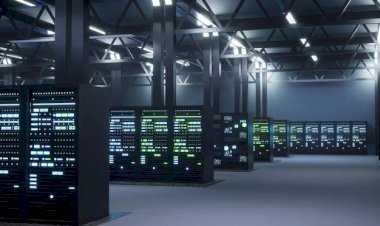How to Prioritize Spending When Starting a Business: A Guide to Essential Expenses
Learn how to prioritize spending when starting a business with our easy-to-understand guide. Discover essential expenses, marketing tips, and financial planning strategies to help your UK-based business grow in 2024.

Starting a business is an exciting journey with endless opportunities, but managing your finances can feel like a big challenge. Knowing how to spend your money wisely can make a huge difference in whether your business succeeds or struggles. With the rise of new business tools and online resources, entrepreneurs today have access to better information and smarter ways to manage their finances than ever before. However, with so many expenses involved in setting up and running a business, it's important to know how to prioritize where to spend your money first. In this article, we are going to look at the key areas to focus on when starting a business and how to spend your budget wisely.
Setting Up Your Business

When starting a business, there are several things you need to spend money on upfront. These are known as setup costs, and they include everything from registering your business to getting the right equipment. One of the first things to do is register your business, which in the UK costs around £12 when done through the Companies House website. You will also need to think about legal fees if you're going to consult a lawyer, which can be an extra expense but is useful for ensuring everything is set up properly.
Another important setup cost is finding the right office space. Depending on your business, you might need to rent a physical location or set up a home office. If you're setting up a physical office, rent is a big factor, but even working from home comes with costs like buying furniture, a computer, or other office equipment. In 2024, with more people working remotely, many new businesses are opting for virtual office solutions to save on rent while still having a professional business address.
Take the example of Rebel Kitchen, a UK-based startup that became successful by focusing on providing plant-based milk alternatives. They initially worked remotely, which reduced overhead costs and allowed them to invest more into product development and marketing. Choosing a flexible work model can be a great way to prioritize spending when launching your business.
When setting up, don't forget about website and branding costs. Your website is your shopfront to the world, and it’s essential that it looks professional and works well. Depending on the complexity, building a website can cost from £500 to £3,000, but tools like WordPress and Wix offer cheaper options if you're on a tight budget. According to the Office for National Statistics, 87% of UK consumers shop online, making a well-designed website essential for attracting and retaining customers.
Managing Your Day-to-Day Expenses

Once your business is up and running, you’ll need to focus on operational costs. These are the regular, ongoing expenses that keep your business functioning. One of the biggest operational costs is employee salaries. Even if you’re the only employee at first, you should factor in paying yourself a salary, and if you’re hiring, make sure you have enough budget to cover wages.
For many businesses, rent and utilities will also be significant. Whether you’re working from home or renting office space, you need to pay for electricity, internet, and other utilities. According to the UK Office for National Statistics, businesses in the UK spend on average £400-£600 per month on utilities, depending on their size.
Another important operational cost is inventory management. If your business involves selling products, you need to maintain enough stock to meet customer demand without tying up too much of your budget in unsold goods. Using inventory software can help manage stock levels and reduce wastage, allowing you to keep control of your finances more effectively.
Consider BrewDog, a Scottish brewery that started small but grew rapidly by carefully managing their inventory and reducing waste. They reinvested their profits into expanding their product line and eventually opened pubs and breweries across the UK, illustrating the importance of good financial planning.
Marketing Your Business

To grow your business, you need to invest in marketing. Without it, people won’t know your business exists, so it’s important to make it a priority. In the UK, over 50 million people actively use social media, making platforms like Instagram, Facebook, and TikTok great places to promote your business.
Social media marketing can be done at a low cost, but to reach more customers, consider investing in paid advertising. Platforms like Facebook Ads let you target specific audiences based on location, interests, and demographics, making sure your adverts are seen by the right people. You can start with a small budget and scale up as you see results.
For instance, Gymshark, a UK-based fitness apparel brand, grew its business almost entirely through social media. They used influencer marketing and targeted ads to build a loyal following, eventually turning it into a £1 billion brand. By focusing on low-cost, high-impact marketing strategies, you can build brand awareness without breaking the bank.
Another important aspect of marketing is email marketing. This involves sending regular emails to potential customers, keeping them informed about your products, special offers, or company news. According to the Direct Marketing Association, email marketing can generate a return of £38 for every £1 spent, making it one of the most cost-effective marketing tools for businesses.
Read More: Understanding the Financial Aspects of Starting and Running a Business
Investing in Technology

In today’s digital world, technology is one of the best investments you can make for your business. From business software to website hosting, these expenses are essential for running your business efficiently. One key area is using accounting software like QuickBooks or Xero to help track income and expenses, making it easier to manage cash flow and stay on top of your finances.
You also need to invest in website hosting and maintenance. Your website is your online storefront, so ensuring it runs smoothly is critical. Hosting costs in the UK can range from £5 to £50 per month, depending on the size of your website and its traffic. Ensuring your website is fast, secure, and mobile-friendly is important for attracting customers and keeping them engaged.
Another growing trend in business technology is customer relationship management (CRM) systems. These help businesses manage interactions with current and potential customers, improving customer service and boosting sales. Many small businesses use free CRM tools like HubSpot before upgrading to more advanced systems as they grow.
Prioritizing Spending on Staff

Hiring the right team is essential for any business, but when you’re just starting out, it’s important to prioritize which roles are most necessary. If your business is growing quickly, you might need to hire employees to handle customer service, marketing, or product development. However, for many startups, hiring freelancers or part-time workers is a more affordable option.
Outsourcing tasks like bookkeeping, web design, or marketing can save time and money in the long run. In the UK, the average cost of hiring a freelancer varies but can be more affordable than bringing someone on full-time. Websites like Upwork and Fiverr can connect you with skilled freelancers who can help with specific projects at a lower cost.
If you do decide to hire employees, make sure you have enough budget to cover not just their salaries but also benefits like pensions, sick pay, and national insurance contributions. Many small businesses in the UK offer flexible working options, which can help attract talent while reducing costs on office space and commuting.
Financial Planning and Cash Flow Management

One of the most important aspects of running a successful business is financial planning. Setting up a cash flow forecast helps you predict your business’s financial position over time. A good rule of thumb is to plan for the next 12 months. This involves listing all the expected income (sales, investments) and expenses (rent, salaries, utilities) for each month.
Make sure to keep an emergency fund that covers at least 3-6 months of your operating costs. According to a Federation of Small Businesses (FSB) report, 38% of small businesses in the UK close due to cash flow problems. This emphasizes how crucial it is to manage your cash flow well. Regularly review your expenses and adjust your budget if necessary to avoid financial issues down the road.
Using financial KPIs (Key Performance Indicators) such as gross profit margin and operating cash flow can help you track whether your business is profitable and sustainable. These KPIs will give you a clearer idea of how your business is performing and where you can cut costs or increase revenue.
Planning for Growth

As your business becomes more established, planning for growth is essential. This involves reinvesting profits back into your business to expand operations, increase your product line, or hire additional staff. Growth doesn't happen overnight, so setting clear goals and measuring progress will help keep your business on track.
You may also want to consider scaling up by investing in new technology or marketing strategies. For example, running Google Ads or Facebook Ads can drive more traffic to your website, which can lead to more sales. However, it’s important to start small with your advertising budget and test which strategies work best for your audience before scaling up.
Many businesses also look at expanding internationally once they’ve established themselves locally. If this is part of your growth strategy, consider the costs involved in entering new markets, such as shipping, currency exchange rates, and international marketing.
Conclusion
Starting a business is an exciting venture, but it’s important to prioritize your spending wisely. From setting up your website and marketing your business to managing day-to-day expenses and planning for growth, how you manage your finances can make or break your business. By investing in key areas like technology, staff, and marketing, while keeping a close eye on your budget, you can set your business up for long-term success.
FAQ
1. What are essential expenses when starting a business?
Essential expenses include costs that are necessary for starting and running your business. These typically include business registration fees, office space, employee salaries, marketing, inventory management, and technology investments like website hosting and business software.
2. How can I prioritize my spending as a new business owner?
To prioritize spending, focus first on the essential costs needed to get your business running. These include legal fees, setting up your website, and marketing to attract customers. Once your business is stable, allocate your budget to areas like hiring staff, expanding your product line, and technology upgrades.
3. How much should I budget for marketing?
It depends on your business, but a general rule is to allocate 5-10% of your revenue to marketing. Using social media and email marketing can help you get started at a lower cost, with options to scale as your business grows.
4. What are the common financial mistakes new businesses make?
Common mistakes include not keeping track of cash flow, spending too much on non-essential items early on, and failing to create a financial buffer for unexpected costs. Many businesses also fail to invest enough in marketing, which limits growth potential.
5. Why is cash flow important for a new business?
Cash flow is crucial because it ensures that your business can cover daily expenses. Poor cash flow management is one of the leading reasons small businesses fail, so it’s important to regularly monitor it and adjust your budget as needed.
6. How can technology help me manage my business finances?
Using accounting software like QuickBooks or Xero can help you track expenses, manage cash flow, and ensure that your taxes are paid on time. These tools also provide valuable insights into your business’s financial health, allowing you to make informed decisions.
7. When should I consider hiring employees?
Hiring employees should be considered when your workload becomes too much for one person or when specialized skills are needed to grow the business. For early-stage businesses, hiring freelancers or part-time workers can be a more affordable option than full-time employees.
8. How can I grow my business once it's established?
To grow your business, reinvest profits into new marketing strategies, expand your product or service range, and consider hiring additional staff. Scaling internationally is another option for established businesses, but it requires careful planning and budgeting for shipping, currency exchange, and marketing in new markets.

















